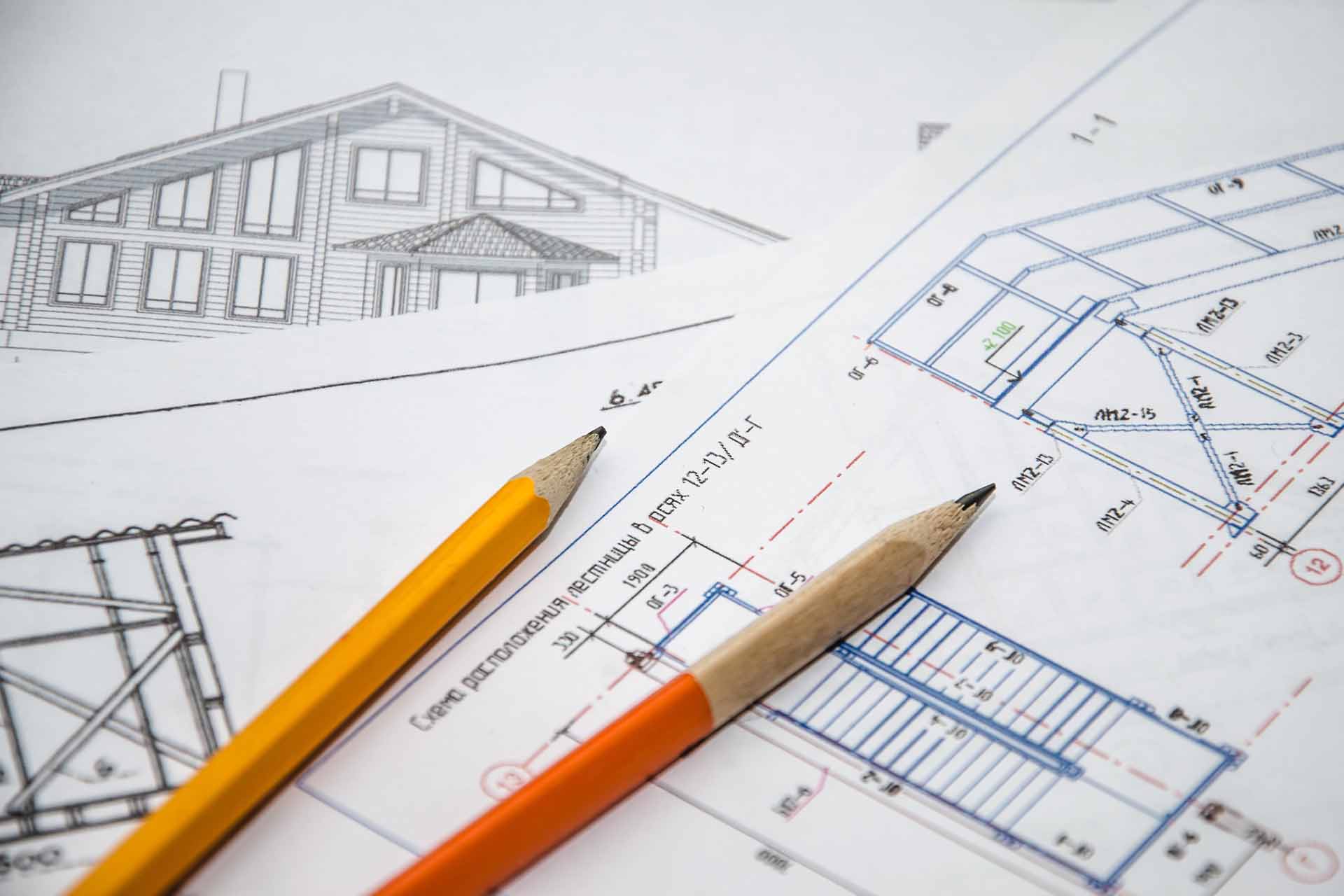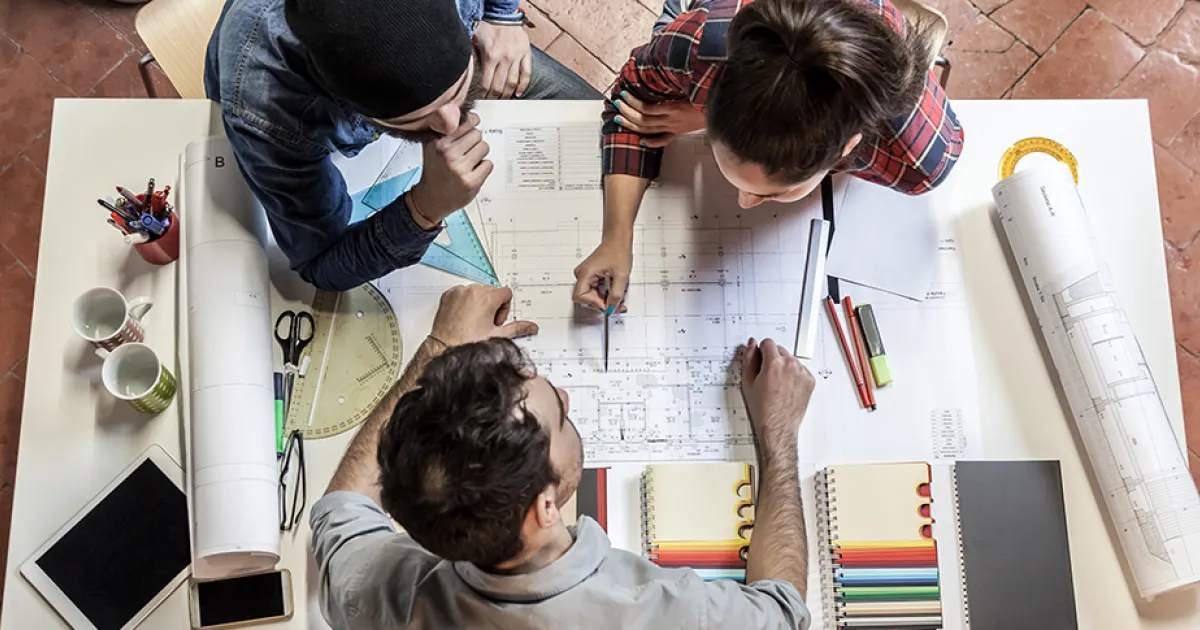Architect-Approved Home Improvement Ideas
Architect-Approved Home Improvement Ideas
Blog Article
Discover the Important Skills and Qualities Every Architect Should Have
As an engineer, you know that success in your field goes beyond just technological skills. It has to do with blending creativity with practicality, promoting collaboration, and taking care of projects properly. Each quality plays an essential role in your capacity to create spaces that inspire and operate well. But what are the details abilities that can really establish you apart? Let's discover the crucial qualities every Architect should grow to grow in this ever-evolving profession.
Imagination and Innovation
Creative thinking and advancement are at the heart of design, driving the style of areas that motivate and work flawlessly. As an architect, you'll require to believe outside the box, pressing limits to develop distinct services for your customers. You'll constantly discover brand-new materials, techniques, and innovations to boost your layouts. Welcoming innovation means remaining ahead of patterns while being adaptable to change.
You'll likewise draw motivation from numerous resources-- nature, art, and even daily life can stimulate fresh ideas. This capability to mix imagination with usefulness allows you to deal with complex problems, ensuring your designs satisfy both visual and functional requirements.
Strong Communication Skills
While creating exceptional spaces calls for imagination, solid interaction abilities are equally as important for designers. You require to share your ideas plainly to customers, professionals, and team members. Listening is simply as essential; comprehending your client's vision assists you create styles that truly fulfill their requirements.
You'll commonly need to explain complicated principles in a method that's very easy to realize, whether you're providing a proposal or talking about products. Effective communication cultivates collaboration, making sure everyone is on the very same web page throughout the job.
Structure connections is crucial, as well. When you establish count on and relationship, clients are a lot more most likely to share their worries and comments, leading to much better results.
Lastly, do not undervalue the power of body language and visual aids. They can enhance your message and make your presentations a lot more appealing. Strong interaction abilities not only raise your layouts yet also strengthen your specialist relationships in the building world.
Technical Efficiency in Style Software Program
As you navigate the ever-evolving globe of architecture, grasping style software program ends up being crucial for converting your innovative ideas right into substantial plans. Acquainting yourself with programs like AutoCAD, Revit, and SketchUp will not just boost your layout capacities yet likewise simplify your process. These devices enable you to create detailed drawings, 3D models, and also simulations that can help you imagine and provide your principles much more successfully.
Consistently upgrading your abilities and checking out brand-new functions can establish you apart from your peers, guaranteeing your styles are innovative and accurate. Ultimately, technological efficiency in design software application is a cornerstone of effective design, assisting you bring your visions to life.
Understanding of Engineering Principles

Understanding engineering concepts also enables you to prepare for possible obstacles early in the design procedure. When you understand exactly how various materials behave under numerous conditions, you can make informed choices that enhance your layouts. Your styles should not just be cosmetically pleasing yet sustainable and likewise practical.
Moreover, a strong grasp of design concepts allows you to innovate within restraints. You can press innovative limits while still sticking to safety and security standards. Ultimately, this understanding enriches your architectural method and establishes you apart in an affordable area.
Project Monitoring Abilities
Effective job administration abilities are important for designers, enabling you to manage all facets of a job from conception to completion. You'll need to collaborate with numerous stakeholders, consisting of service providers, customers, and designers, ensuring everyone's on the same web page. Establishing clear objectives, timelines, and budgets is fundamental; it helps you maintain the task on the right track and within extent.
As an engineer, you need to likewise be experienced at threat monitoring, recognizing prospective issues before they rise. Strong communication abilities are very important, enabling you to articulate your vision and inspire your team. You'll gain from being arranged and detail-oriented, as this assists enhance procedures and stay clear of pricey delays.
Furthermore, adaptability is key; jobs typically advance, and being adaptable permits you to react successfully to modifications. Eventually, your task administration skills can considerably affect the success of your building ventures, guaranteeing you supply quality results promptly and within budget.
Interest to Information
While managing projects is essential, your focus to detail can make a considerable difference in the quality of your work. Every line you attract, every product you choose, and every small spec you keep in mind adds to the total success of a project. You need to be careful, guaranteeing that your layouts not only satisfy aesthetic requirements yet also comply with building guidelines and codes.
Missing out on even a check here little information can lead to costly alterations or security issues down the line. By growing a keen eye for information, you boost your capacity to identify potential troubles before they rise. This watchfulness not only conserves you time and resources but also builds your track record as a reliable Architect. Bear in mind, it's typically the smallest information that raise a job from good to outstanding. Accept this ability, and allow it direct your layout procedure, making sure that your vision is executed faultlessly.
Flexibility and Problem-Solving Skills
As a designer, you'll usually face unforeseen changes in layout and project needs. Your capability to embrace these changes and locate innovative remedies is important for success. Remaining flexible in your strategy not only improves your problem-solving skills however likewise maintains click here your tasks on the right track.
Embracing Adjustment in Style
Embracing change in design is crucial for designers, particularly when steering evolving client demands and emerging innovations. You need to grow versatility, as jobs typically shift direction based upon new insights or restrictions. Being open to change allows you to explore innovative techniques and develop remedies that resonate with your clients.
When confronted with obstacles, your analytic skills enter into play. You'll commonly need to rethink principles and change plans on the fly, making certain that the last end result lines up with the customer's vision while meeting safety and regulative standards. By being clever and adaptable, you not only improve your styles however also develop trust with your customers, showing that you can navigate the complexities of modern architecture effectively.
Ingenious Solutions to Challenges

Versatility in Task Monitoring
While maneuvering the complexities of job administration, versatility ends up being a crucial possession for designers. You'll frequently deal with unexpected challenges, from layout adjustments to budget plan restraints, calling for fast thinking and flexibility. Accepting change allows you to pivot your approaches and locate ingenious options, making sure job success.
Strong problem-solving skills are essential; they allow you to evaluate scenarios, consider alternatives, and implement reliable options on the fly. When dealing with diverse groups, being open to responses and different ideas cultivates partnership and sparks creative thinking.
Regularly Asked Inquiries
What Educational History Is Required to Come To Be an Engineer?
To end up being read more an engineer, you'll require at the very least a professional degree in architecture, typically a Bachelor's or Master's. Completing an internship and getting licensure with exams is vital for your profession development.
Exactly How Important Is Networking in the Design Field?
Networking's crucial in design. It helps you develop relationships, find job possibilities, and gain insights from seasoned experts. By getting in touch with others, you boost your occupation potential customers and stay updated on sector trends and advancements.
What Are the Typical Job Paths for Architects?
Usual occupation courses for architects consist of design functions in companies, project administration, city planning, and specialized locations like lasting architecture. Architect. You may also discover mentor or consulting, depending on your passions and experiences
How Can Designers Keep Updated With Industry Patterns?
To stay upgraded with market fads, you should frequently attend conferences, join professional associations, sign up for appropriate publications, and engage with on-line forums. Networking with peers likewise assists you acquire insights right into arising advancements in design.
What Role Does Sustainability Play in Modern Design?
Sustainability forms modern-day architecture by highlighting energy effectiveness, source preservation, and environmentally friendly products. You'll develop spaces that decrease ecological influence, enhance passenger well-being, and react to environment obstacles, making your styles a lot more impactful and relevant.
While developing exceptional rooms requires creativity, strong interaction abilities are just as vital for designers. Strong communication abilities not just boost your layouts however also strengthen your professional partnerships in the architectural world.
Effectiveness in style software program lays the foundation for a deeper understanding of design concepts, which is essential for designers.As a designer, you'll commonly deal with unanticipated changes in design and job demands.Accepting modification in design is vital for architects, specifically when steering evolving customer requirements and arising innovations.
Report this page